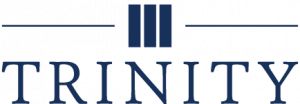Thinking & Writing Courses
Thinking & Writing courses are part of Trinity’s Foundations (General Education) Curriculum. In these courses, students study topics and issues that engage a variety of audiences in contemporary public life, addressing the question “What is the good life?” Engagement with course content involves attention to students’ processes of thinking and to the process of writing.
Trinity faculty members from any discipline are invited to develop and teach a Thinking & Writing course. The courses are coordinated by the Director of the Center for Teaching and the Good Life, Dr. Mark Peters.
In The Arthurian Tradition, students take up this question in the context of one of the most enduring of literary traditions in the English language, the grand narrative of King Arthur and his Knights of the Round Table. For centuries, audiences have been entranced by the exploits of the legend’s evocative characters—Arthur, Merlin, Lancelot and Guenevere, Galahad, Tristan and Isolde, Morgan Le Fey, Sir Gawain, the Lady of the Lake, the Fisher King—as generations of writers, artists, composers, and filmmakers have retold and embellished its many stories. In this course, we shall undertake a studied and unhurried exploration of the Arthurian tradition, tracing the development of a myth from its earliest medieval articulations through its most recent settings in popular fiction and film. Giving special attention to the national, religious, and sexual resonances that the stories have accrued as they have been re-imagined at different historical moments, we shall seek to understand why it is that this particular legend has endured for so long, and why it continues to mesmerize audiences today. Throughout our study, we will consider the good life in light of such Arthurian themes as the ideal society, courtly love, fellowship, and nostalgia for an irrecoverable past.
In Communities and the Good Life, students will examine the role that community life and community institutions (family, neighborhood, church, local businesses, local government, etc.) play in forming one’s identity and character. The course takes as its starting point the communities in which students themselves have lived to think about these in light of both individual and communal formation. The course then asks students to consider how people lived in community in other times and places, with the hope that their vision of the good life would be enlarged by considering how people lived in community in other times and places. Listening to others’ stories is a way of loving one’s neighbor, both one’s neighbor who lives today and one’s neighbor who lives in the past.
In Disability and Community: Thriving Together, students will engage such questions as: What does it mean to thrive within a community in which the members have a variety of abilities? How can I fully engage a workplace in which my colleagues or clients have abilities that differ from my own? How can I advocate for inclusion and belonging in my place of worship? How can I learn from and serve alongside classmates who process the world differently than I do? This course will examine disability through a variety of lenses, while helping participants consider a perspective of community in which all members are valuable. Participants will contemplate the biblical perspective of disability by reflecting on J esus’s model of healing in the gospels. In order to experience the richness of Our Community with people that share and differ from participants based on ability, the class will engage with a variety of individuals with disabilities and their family members. Alongside these experiences, students will explore disability historical perspectives, stigma, theory, identity, labeling, and culture. As a student, how will You respond? You have an opportunity to contribute to the flourishing of the communities that you belong to. Can you find the J.O.Y. in disability within your community and thrive together?
Course developed by Dr. Christine Scholma, Assistant Professor of Special Education
A History of Toleration invites students to consider how being human requires learning how to interact with others in fruitful and life-giving ways. This course invites students to consider different approaches to toleration in the past, including how those who have had different concepts of religious truth, morality, or politics have been tolerated or not tolerated. The course studies historical cases to better understand attitudes toward toleration with an emphasis on determining how toleration might function as a part of the good life. As part of that study, students will read primary sources that make arguments about toleration, consider historical instances in which toleration was or was not valued, and be exposed to the broader historical contexts in which those debates and practices were occurring. In addition, students will think critically about the role toleration has played and should play in a Christian worldview.
Course developed by Dr. Kyle Dieleman, Assistant Professor of History
Longing for a Good Home explores conceptions and portrayals of home, of a good home, and of the constant human state of longing for a good home. It takes as its starting point students’ own experiences and conceptions of home, and builds on these through readings in fiction, memoir, and Christian perspective. Students will share stories, respond to readings, engage in conversation with their peers, reflect on their own homes and families, and dwell with Bible passages relating to home. The course is framed by the biblical story that begins and ends with the ultimate good homes—the garden of Eden and the kingdom of God—and by our place in the middle of the story as we yearn and work for God’s kingdom. Longing for a Good Home seeks to live into Wendell Berry’s injunction, “We do not have to live as if we are alone.”
In The People, Language and Culture of Indonesia, students will grow in their capacities as creative thinkers and writers through engagement with the language, culture, and life of the people of Indonesia. Indonesia is the fourth largest country in the world, after China, India, and the United States. With over 17,000 islands, more than 300 ethnic groups, and about 264 million people, Indonesia has a lot to offer to the world. In this course, students will communicate effectively by learning basics of the Indonesian language, writing on what they learn, presenting on particular aspects of the Indonesian people’s lives and cultures, and working on creative projects that reflect their learning experience. By learning about people, culture, and language of Indonesia, students will together celebrate God’s creation, particularly in his works in, for, and through the country of Indonesia. Students will be equipped to respond to God joyfully, appreciate their neighbors truthfully, and enrich their own lives wholeheartedly.
In When Tragedy Strikes, What Is the Good Life?, students consider the question of how societies should respond when terrible things happen in order to ensure continued happiness, prosperity, and flourishing for its members. In particular, this course studies how works of dystopian fiction answer that question in an effort to sharpen our own sense of how to respond to living in a fallen world. Is the answer more government control? More individual freedom? Economic equality? Economic Darwinism? Abandoning religion? Religious revival? In an effort to think deeply about these questions, students will read, think about, discuss, and write about representative examples of dystopian fiction written by authors from a diverse set of religious and philosophical backgrounds. Students will examine fictional worlds in an effort to shed light on their place both in Creation and the smaller communities in which they live.
Developed by Dr. Tim Hendrickson, Assistant Professor of Literature and Languages
In Cultural Diplomacy in the Twentieth Century, students will study ways that the United States and the international community sought to cooperate with Latin American countries during the 1900s, including cultural diplomacy and mechanisms of soft power. During this time, institutions, scholars, writers, artists, and educators from both sides of the continent gave rise to a dynamic process of cultural exchange. Artists like Jose Clemente Orozco and Diego Rivera from Mexico were invited to the US to collaborate and leave their cultural legacies at Dartmouth College and the Museum of Modern Art. This course examines these diplomatic efforts, while considering questions about the media and literary representation on the concept of otherness and/or the “other” in our society. Students will learn to read proficiently and think critically about culture, including examining larger systems and structures. By evaluating both the brokenness and hope in our world from a Reformed worldview, students will learn to formulate perspectives on God’s intended creation and His purpose for the “good life.” Class lectures will be delivered in English, and the students
will have a choice to submit their assignments and homework either in English or in Spanish, as the course content engages two cultures and two languages. The professor will provide feedback on assignments based on the language of their choice.
In Thinking and Writing in Code, students consider how throughout human history, writing technologies have profoundly shaped the ways that humans think, express themselves, and conduct their social and cultural relationships. However, the languages and writing that inform the information technologies we use today have become mostly hidden to us, a secrecy and hiddenness reflected in our use of the word “code” to describe this writing. We depend greatly upon these powerful and complicated information technologies, and they continue to profoundly shape our lives, and yet our relationship to them often leaves us feeling fearful, ignorant, and vulnerable. Thus, the good life to which we are called by God must include redeeming the design, production, deployment, and use of information technologies. Students in this course will begin to learn about the structures, particularities, and nature of “code,” writing carefully, clearly, logically, and intentionally in actual software language. First, students will learn to write the code underlying web pages, writing about our relationships to the web using the web itself as a writing space, deepening their understanding of the web and moving toward a more empowered relationship to the Internet. Second, students will move on to write software code in “Processing,” a versatile programming language environment that is very friendly to beginning programmers: visual, interactive, experimental, playful, yet also powerful. Writing critically, reflectively, and hopefully within the medium of software itself, students will create interactive software experiences that problematize and reimagine our relationships to software as ones closer to the kind of good life to which God calls us. Students do not need any prior experience with web design or with writing in computer code in order to take this course and enjoy it.
Imagination and Community is designed to challenge Honors students to read, think, and write beyond the bounds of their previous experience and to think about and enjoy writing in new ways. In Imagination and Community, students share their own stories, hear the stories of others, consider story in Christian perspective, and reflect on the nature of story in light of shared human experience. Students also engage the essential role of imagination in our thinking, reading, and writing, as we consider the world, ourselves, and our community in new ways. Imagination and Community seeks to instill in students practices intentionally building a strong group dynamic, of carefully listening to and thoughtfully responding to the work of others, and imaginative approaches to reading and writing. It takes as its starting point Wendell Berry’s injunction, “We do not have to live as if we are alone.”

